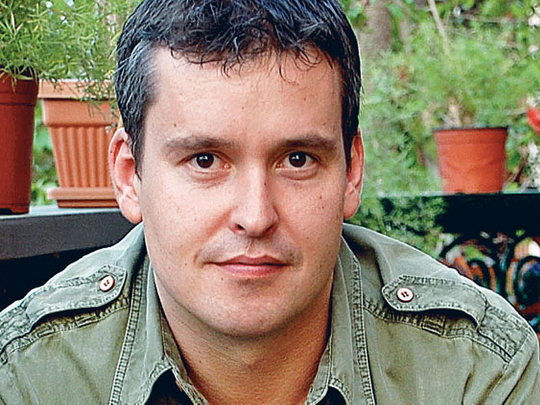
Dubai: Following the boom in the social media, many businesses in the region are catching up with the technology and are reconsidering the ways they do business. Gulf News talks to Steven Vaile, Chief Executive Officer of H2O New Media, a social media consultancy firm that helps companies deploy the social media platform to their advantage, about what social media is and how it can be used as a business tool.
Gulf News: Let's start off by defining social media. What is social media?
Steve Vaile: Social media is a technology change and I don't think ‘social media' is the right terminology. It should probably be social communication. It used to be five or six years ago that all of your news media consumption was defined for you by newspapers and television news. What's happened with social media being a communications technology change is that it's completely turned that around. The individual is creating the media. That doesn't mean that structured media doesn't have a place any-more, but there has been a fundamental shift in terms of technology adoption that has utterly changed the landscape for business, politics, governments and companies. Social media is as important a technology as the mobile phone, as the internet, as the printing press. It's one of the most fundamental changes for the way things work. It's a complete change and turnaround in the way that people communicate.
How can businesses take advantage of social communication?
Social media is certainly not just Twitter and Facebook. They're popular at the moment, but they are technology platforms and like all technology platforms they come and go. From a business perspective, it's also not just marketing. Let's take the example of HR (human resources). When you look at social media at HR, you're looking at improving employee engagement. Having a social network, you can get people sharing ideas, bringing invention into the business; they can communicate much better internally.
If you look at the innovation process within a business, a great example is Dell. Dell has a platform called Idea Storm and it allows Dell customers to tell Dell what they want to see on their computers. That is a good example of how just a very simple and quick deployment of technology at less than $30,000 (Dh110,168) or $40,000 they're getting direct feedback and thousands of ideas. That would cost any business hundreds of millions of dollars if they were to run it from their own R&D (Research and Development). It becomes more collaborative in terms of working with your customers and getting your customers what they want. It's one of the highest returns of investment you can get in deploying social media. Another example is training and education. They have also completely changed as a business. Why travel and why sit in a classroom when you can have the information delivered to you online?
How are companies in this region and specifically the UAE adapting to this change?
In terms of the adoption here, it's a couple of years behind. But what you tend to find in the Middle East market is that they will be behind a year or two and then they will be absolutely on the cutting edge. However, it's not coming, it's not on the way, it's already here because there are a lot of people who are using this technology and are having very positive business results. I think the companies who are the last to embrace it are the last to benefit. If my team can communicate better than my competitor's team, then that's a fundamental competitive advantage. It's an opportunity that every business should grab.
How do you think this will affect the media?
The Media brands business is entirely changing because advertising is not as important as engagement now. Marketers are not just looking for advertising and brand awareness; they're looking for brand advocacy. Their biggest challenge is how to make money off social media. I know a lot of traditional print companies that are now failing and going out of business because their traditional print business is gone. If you're a marketer are you going to spend your money in print or online? If you spend it in print you know you'll get circulation, but you don't necessarily know how many people have read your advertisement. But when you've got digital distribution of the same content you know who's looked at the banner, how many times it's been seen, who's entered a comment, etc. This is how the technology has changed the media business.
You mentioned social media is a double-edged sword that can really destroy a business if it's not well planned. Can you give an example of when that happens?
There are a lot of examples of social media gone wrong. It's a double-edged sword if you lie, if you've got products that are not good, if you're polluting the environment. Everything's public so there's no control over it and you can't spin it. Where business can go wrong is by being arrogant, not telling the truth and not being transparent. Of course, no business is perfect. People make mistakes and it's better to admit that you've made mistakes and people will respect you for it.
How much would it cost a company to invest in social media?
A company can take advantage of social media by simply using Twitter. That's not to say it's free. The platform may be free but if it's taking you six hours to update twitter then it's not free. It's an investment of time and resources; however the return on the investment is much higher. The key here is to measure and understand the return on your investment. Social media is an opportunity to have a huge return on a business. Right now if it's not on a CEO's top ten, then the CEO's in trouble.
So does that mean that anyone with a good business idea can start his/her own business?
Absolutely, and it's not just now. It's always been that way. I think word of mouth has improved because of social media. It's instantaneous, free and allows you to communicate with people around the world. So if you've got a great idea all you need is a laptop and your wits about you. To say that there are internet millionaires is a complete fallacy, there's internet billionaires.
Any piece of advice?
One thing that consumers need to look at when they're signing up to a social media channel is who has ownership of the data. At the end of the day it's your private information and it's your network of friends. Before you rush to sign up, look at the privacy statement, look who actually owns the company as well.
It's just as likely that you could be signing into a media channel owned by a banking environment or credit rating agency or government agency. It's your data and who you decide to share it with is pretty critical.












